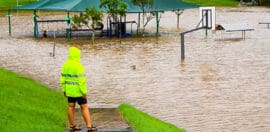Australia drops to bottom of UN climate action ladder

6 July 2021 at 8:34 am
The nation scored poorly against fossil fuel use, and progress towards implementing a carbon price
Australia has ranked last on climate action out of nearly 200 countries, the latest report on progress towards the Sustainable Development Goals finds.
The report, released by the UN-backed Sustainable Development Goals Solutions Network (SDSN), placed Australia below 193 United Nations member countries including Brunei, Qatar, and Norway.
A database provided alongside the report shows Australia scored just 10 out of 100 points for the “climate action” goal which tracks fossil fuel emissions use, emissions associated with imports and exports, and progress towards implementing a price on carbon.
The report also highlighted the nation’s failure to commit to net zero emissions by 2050.
“More than 30 countries have included climate neutrality by 2050 (or 2060) in laws, proposed legislation, or a national policy document,” the report said.
“These include all G20 countries except Australia, India, Indonesia, Mexico, Russia, Turkey, and Saudi Arabia. Brazil and China committed to climate neutrality by 2060.”
Prime Minister Scott Morrison has instead signalled Australia wants to achieve carbon neutrality as soon as possible and “preferably” by 2050.
When it came to clean energy, the country was cited as having “major challenges” but recorded a moderate improvement over the past 12 months.
Pandemic stalls global progress
Australia did score strongly in the areas of economic growth, education, and clean water and sanitation however, placing 35th overall. This is up from 37th in 2020, and 38th in 2019.
But the report noted that this was the first time since the creation of the SDGs in 2015 that there had been a global reversal in progress towards the goals, predominantly due to the pandemic.
Jeffrey D. Sachs, president of the SDSN and first author of the report, said that the pandemic had created “not only a global health emergency but also a sustainable development crisis”.
“To restore SDG progress, developing countries need a significant increase in fiscal space, through global tax reform and expanded financing by the multilateral development banks,” Sachs said.
“Fiscal outlays should support the six key SDG transformations: quality education for all, universal health coverage, clean energy and industry, sustainable agriculture and land use, sustainable urban infrastructure, and universal access to digital technologies.”
Monash University professor John Thwaites, who is chair of SDSN for Australia, told Pro Bono News previously that the country’s speedy COVID-19 response offered a way forward.
“[Our initial COVID] response demonstrates that when we follow the science and commit to action, we can perform very well,” Thwaites said.
“We should learn the lessons from our good COVID response and apply the same approach to the other big challenges we face like climate change and broader environmental issues.”
See the full report here.







